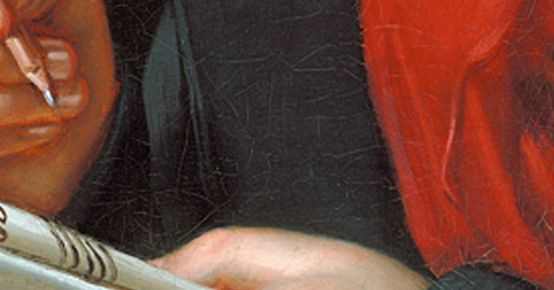String Quartet No. 14
Beethoven every Friday: to mark his 250th birthday, we take a look at one of his works every week. Today it's the String Quartet No. 14 in C sharp minor.

In 1826, the Schott publishing house wanted to know whether the quartet was not an arrangement before the contract for publication was signed. Beethoven, a little annoyed by this, noted on the engraver's copy: "stolen together from various this and that." Concerned that he might end up being taken at his word, he followed up only a little later in a letter: "They wrote that it was supposed to be an original quartet, it was delicate to me, so as a joke I wrote next to the inscription that it was worn together. It is brand new underneath."
Apart from the linguistic wit and the subtle choice of words in this remark, it refers to a work that is new in several respects: with a total of seven movements (Beethoven, however, spoke of "Pieces"), four of which can be joined together to form two pairs, the composition already advances into new dimensions on the surface. But the individual movement characters also point far beyond the contemporary horizon and into the 20th century: the melancholy fugato of the first movement, the subtly circling second, the recitative-like third, which leads to the central variations, the cheeky Presto and the short, elegiac sixth movement, which precedes the angular, subjective finale. Even though Beethoven never saw a public performance of the work, he demanded a performance almost without pauses. Karl Holz, the cellist of the Schuppanzigh Quartet, asked in a conversation booklet at the end of August 1826: "Does it have to be played through without stopping? - But then we can't repeat anything! - When should we vote? ... We will order reliable strings." You can easily imagine the corresponding answers.
If we trust Holz's recollections, which were later recorded by a third party, this string quartet was also the last music Franz Schubert heard. It is said to have been performed privately a few days before his death; Schubert may even have played the viola part himself. Ludwig Nohl reports on this: "Mr. Holz, Karl Groß and Baron König played it for him; only Doleschalek, the piano teacher, was present. Schubert became so enraptured and enthusiastic that everyone feared for him. A slight indisposition, which had preceded and not yet been thoroughly cured, increased enormously, turned into typhoid fever, and Schubert was dead after five days." (Beethoven, Liszt, Wagner. A picture of the art movement of our century, Vienna 1874, p. 111 f.)
Listen in!







